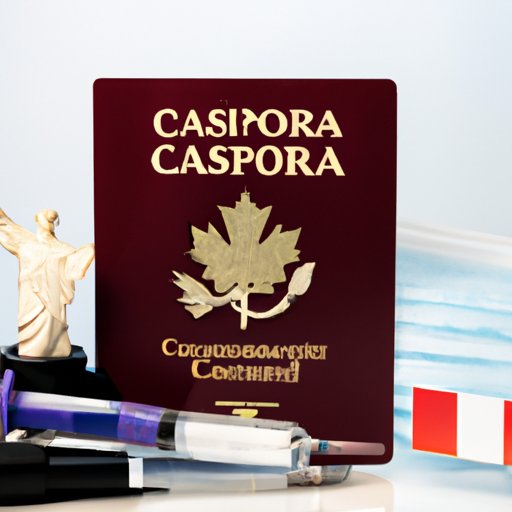Introduction
The United States and Canada share one of the longest international borders in the world, and many Americans have traditionally taken advantage of the close proximity to explore the diverse cultures, landscapes, and cities that each country has to offer. However, due to the ongoing COVID-19 pandemic, the US-Canada border has been closed to most non-essential travel since March 2020.
This article will explore the current state of the US-Canada border and the restrictions imposed on Americans seeking to visit Canada. It will also examine the impact of the border closure on the Canadian tourism industry, analyze the latest updates to Canadian travel policies, and review the necessary preparations for American visitors heading to Canada.
The Impact of the US-Canada Border Closure on Tourism
The US-Canada border closure has had a significant impact on the Canadian tourism industry. According to a report by Statistics Canada, the number of international visitors to Canada fell by 75.1% in 2020 compared to 2019, resulting in a loss of more than $11 billion in tourism revenue.
This decline in international tourism has caused a ripple effect throughout the Canadian economy, leading to job losses and reduced economic activity. A recent survey by the Canadian Chamber of Commerce found that nearly one-third of tourism businesses have had to lay off employees due to the border closure, while over half reported decreased sales.

Analyzing the Latest Updates to Canadian Travel Policies
In order to reduce the spread of COVID-19, the Canadian government has implemented a series of travel restrictions for visitors entering the country. All non-essential travel from the United States is currently prohibited, with limited exceptions for essential workers and family members of Canadian citizens or permanent residents.
In addition, all travelers entering Canada are required to self-isolate for 14 days upon arrival, even if they do not show any symptoms of COVID-19. Those who fail to comply with the quarantine requirements may face fines of up to $750,000 and/or imprisonment.
Examining the Possibility of Reopening the US-Canada Border
Although the US-Canada border remains closed to most non-essential travel, there is hope that it could reopen in the near future as both countries continue to roll out their respective vaccination programs. In February 2021, the Canadian government announced plans to introduce a “vaccine passport” system that would allow vaccinated travelers to enter the country without having to quarantine.
In addition, the Canadian government has stated that it is considering introducing testing requirements for travelers entering the country, similar to those already in place in other countries such as the United Kingdom.

Reviewing the Necessary Preparations for American Visitors Heading to Canada
For Americans planning to visit Canada, there are several important steps they should take before their trip. First, they should make sure they have the necessary documents to enter the country, such as a valid passport or NEXUS card. They should also purchase travel insurance in case of an emergency, and be sure to bring enough medication for their stay.
It is also important to be aware of the potential risks associated with travel during the pandemic. Travelers should research the local laws and regulations in the area they are visiting, and follow all guidelines set forth by the Canadian government to help prevent the spread of COVID-19.

Examining the Different Exemptions Allowing US Citizens to Enter Canada
Under the current travel restrictions, there are certain exemptions that allow US citizens to enter Canada. Essential workers, such as healthcare professionals, are allowed to cross the border for work purposes, as are immediate family members of Canadian citizens and permanent residents.
Travelers who are eligible for entry under these exemptions must still abide by the same quarantine requirements as all other travelers, as well as any additional restrictions that may be imposed by the province or territory they are visiting.
Assessing the Potential Risk Factors for Americans Traveling to Canada
Despite the various exemptions and travel policies in place, it is important for American travelers to understand the potential risks involved in visiting Canada during the pandemic. While the risk of contracting COVID-19 in Canada is generally lower than in the United States, travelers should still take all necessary precautions to protect their health.
In addition, travelers should be aware of the potential legal consequences of violating Canadian laws and regulations. Depending on the severity of the offense, travelers may be subject to fines, imprisonment, or deportation.
Conclusion
The US-Canada border remains closed to most non-essential travel, and American visitors to Canada must adhere to certain restrictions and guidelines. Although there is hope that the border could reopen in the near future, travelers should take the necessary precautions to ensure a safe and enjoyable trip. By understanding the current policies and risk factors involved in visiting Canada, American travelers can ensure that their trip goes as smoothly as possible.
(Note: Is this article not meeting your expectations? Do you have knowledge or insights to share? Unlock new opportunities and expand your reach by joining our authors team. Click Registration to join us and share your expertise with our readers.)
